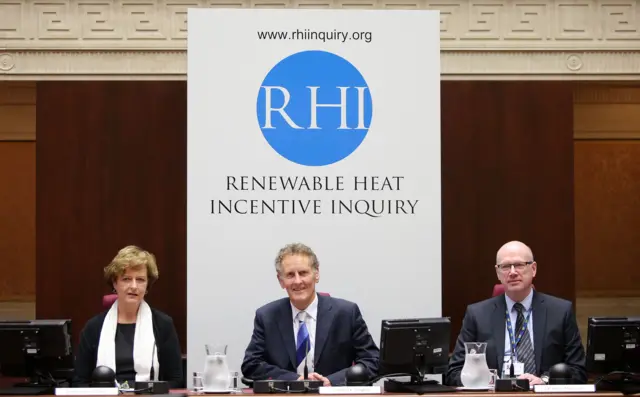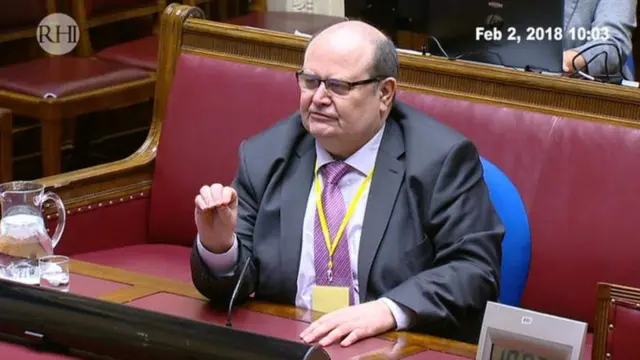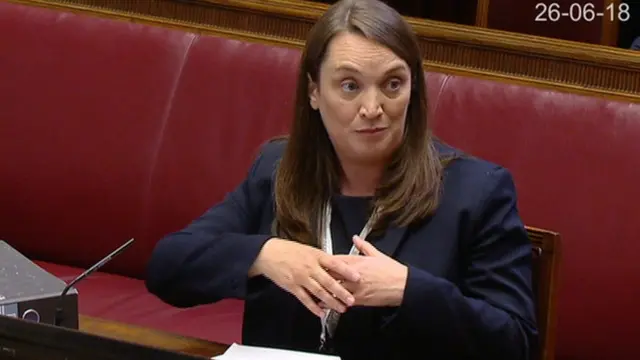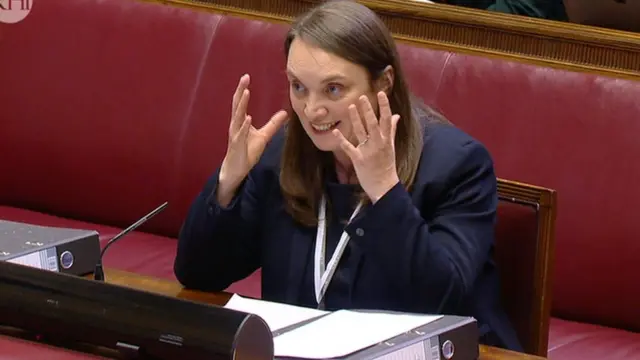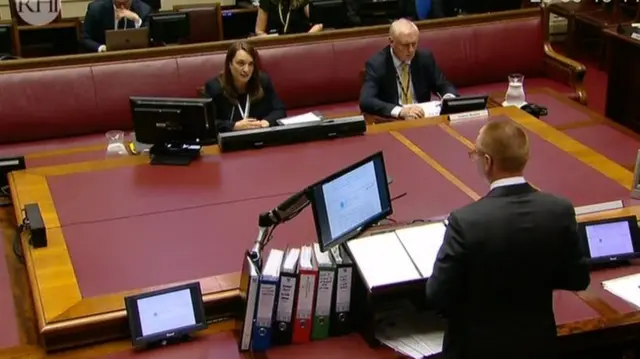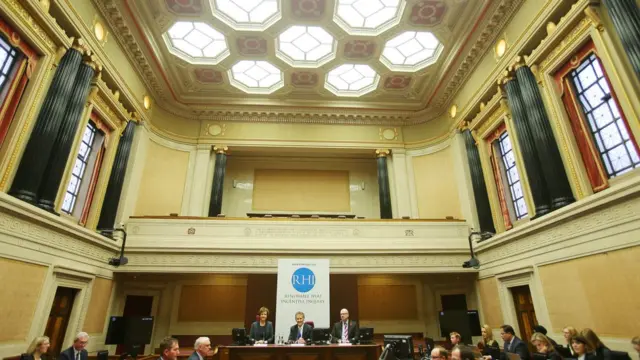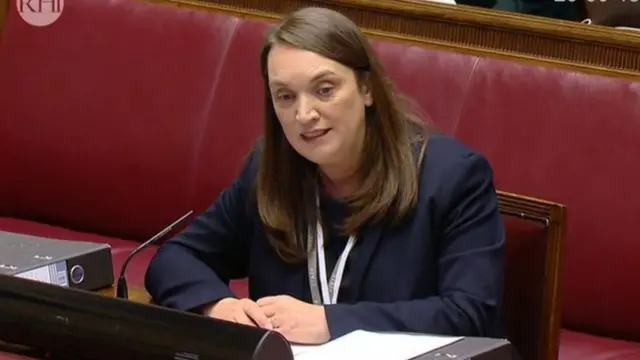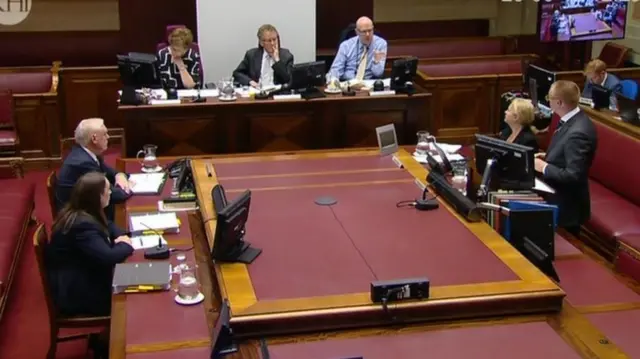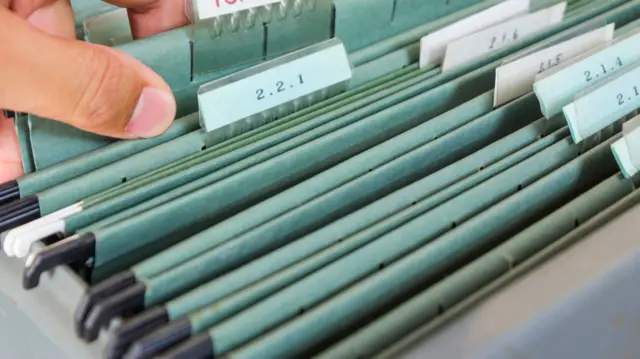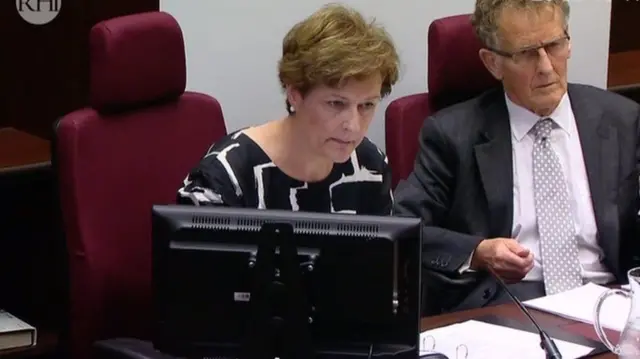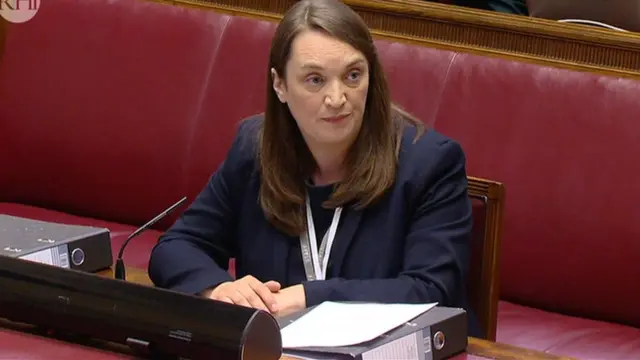That's all for today...published at 17:10 BST 26 June 2018
The day draws to a close in the Senate chamber, even though there's still a lot to get through with Ms Morelli - she'll have to come back another time.
The inquiry barrister Mr Aiken tells us that's his last action before the inquiry's summer break - we'll miss his train analogies - but he'll be back in the autumn.
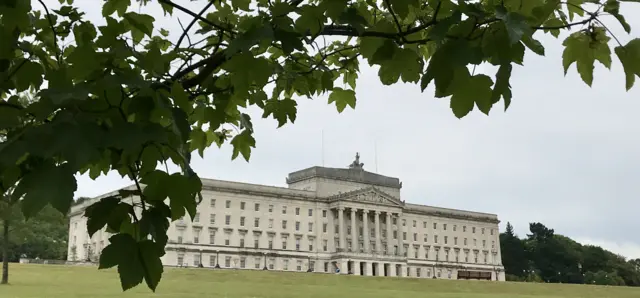
Back here tomorrow from 09:45 for evidence from a new witness - DETI's deputy permanent secretary Chris Stewart will start into the first of two days before the inquiry.
His statement has been published on the inquiry's website, external and it'll make for interesting evening reading.
Anyway, it's long past time we got out into the heatwave!

